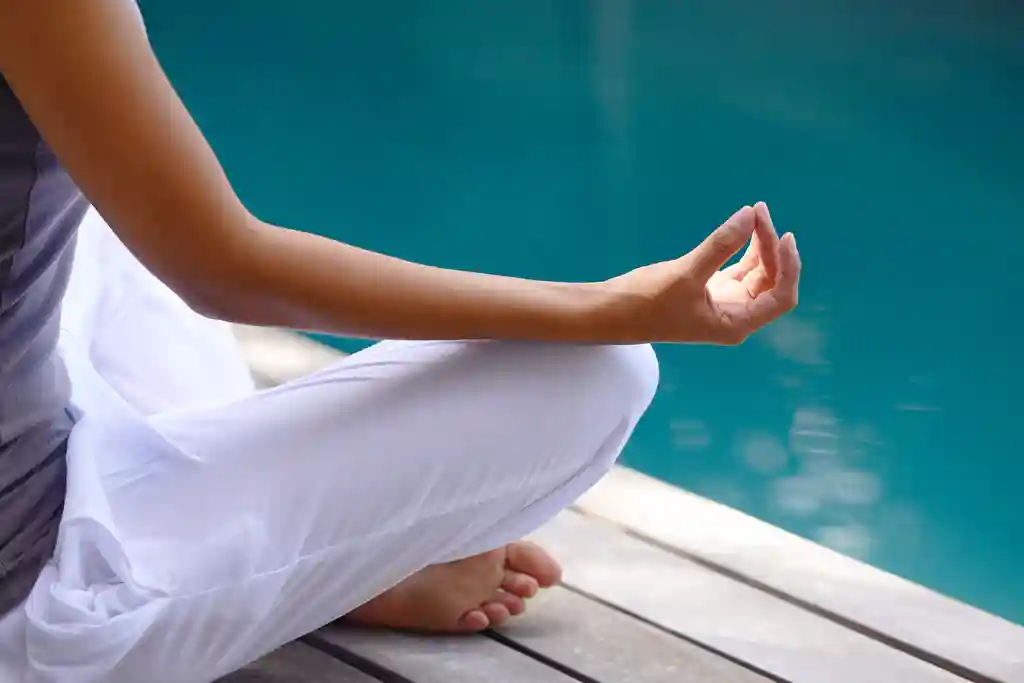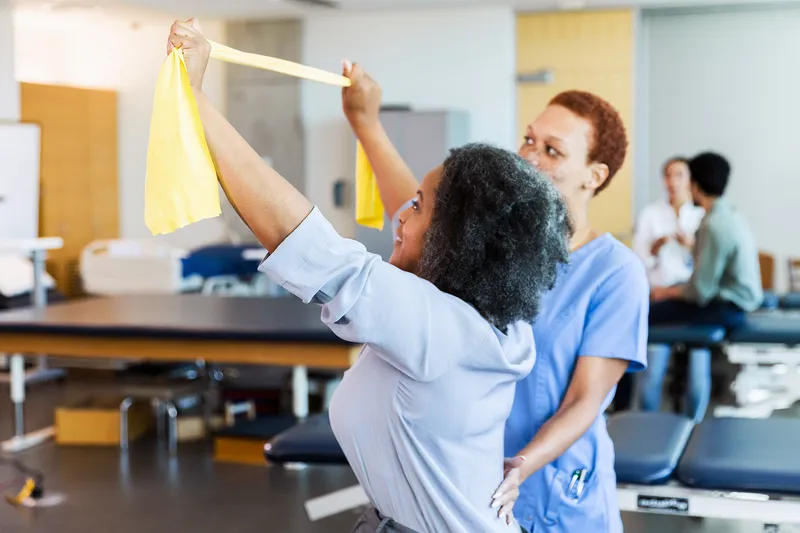
In my late 20s, I was a chronically ill woman with no health insurance, desperate for an improvement in my migraine health. Some trusted advisors encouraged me to meet with a doctor at the now-defunct Mind-Body Institute in my town. Desperate for a change and on the cusp of hopelessness, I saved up for a consultation.
Because I am now quite well-versed in complementary therapies, it’s funny to think of how utterly perplexed I was when the treatment plan he gave me mostly involved lifestyle and dietary changes -- my previous doctor didn’t ask about my sleep patterns, exercise routines, stressors, coping skills, typical diet, etc. He simply prescribed a cocktail of meds that he’d switch up each visit. I often felt he saw me as a collection of medical records and not a human.
A New Approach
The new doctor’s approach could not have been more different. He wanted to know what my daily life was like and what my goals were. He wanted to understand how migraine impacted my past, present, and future. His holistic approach gave me hope. Migraine disease had already robbed me of so much, yet I was optimistic as I vowed to follow his suggestions.
- Vitamins? Check.
- Dietary changes? Check.
- Establishing a sleep routine? Check.
- Regular exercise? Check.
- Therapeutic yoga? Check.
- Mindfulness meditation? Um …
Mindfulness meditation? I had, of course, heard the word “meditation,” but back then -- in 2008 -- mindfulness meditation wasn’t talked about as much. There were no smartphone apps for meditators (most folks didn’t even have smartphones yet).
How could meditation -- or, rather, the stereotypical version of meditation I imagined -- affect my physical health? I envisioned people sitting monastically in a dimly lit room, smoke from the omnipresent incense curling around their heads as a disembodied voice repeated the phrase, “Completely clear your mind.”
My skepticism was intense. I was sure meditation would never “work” for me: My brain is constantly bouncing around, I thought. Additionally, I had a long-held belief that cycling through absurdly expensive prescription drugs would eventually bring me back to normalcy, even though none had delivered a miracle so far.
Changes That Work
My assumptions about what mindfulness meditation would entail could hardly have been further from the truth. Within a month of meditating no more than 10 minutes a day a few times a week, I could already sense a shift.
For example, when faced with an unpleasant surprise or stressor, I realized I could very often respond calmly instead of reacting in a knee-jerk way. I first noticed the change when I dropped a plate when unloading the dishwasher. Instead of being startled, then yelping or cussing, I quietly said, “Dangit.” I hadn’t jumped in surprise. I was just … chill. I grabbed the broom and started cleaning up.
Does mindfulness meditation make it so I have a migraine-free life? Nope. Does it make it so I am triggered less often and more in touch with my mental, physical, and emotional health (all of which are related to migraine)? Yep.
There are some days when I am in the zone: sitting quietly, back straight, eyes shut, my mind and body still and calm as I listen to my meditation app. That’s the sort of scenario many friends of mine envision when I tell them about my goal of meditating almost every day. Over 12 years into my practice, I find myself thinking that that is the “right” way to meditate.
But get this: There is no wrong or right way. This is hard to swallow for perfectionists like me; people who crave order and a sense of control. Some days I feel fidgety beyond reason, incorrigibly distracted, mentally scrolling through my to-do list, wondering how even a 10-minute meditation track can feel like it’s taking up so much time. Some days I put off my morning meditation until bedtime, which often results in skipping it all together. You can’t fail at this; there’s no winning or losing.
Learning to Let Go
Within a couple of months of starting my mindfulness journey back in 2008, I had learned how to pause before panicking, to engage with my breath to calm my nerves. Did I turn into a perpetually calm, cool, and collected woman? No, but I certainly lean toward those attributes more than I used to.
Did I learn to use meditation to reverse a migraine attack? Still no. But I don’t use mindfulness because I’m hoping for a cure -- I’m merely hoping to be more present and, when possible, to hear and heed my body’s “take it easy” cues when they come in.
Mindfulness allows me to recognize when I have a potential migraine attack on the horizon. Having more information about what’s going on with me leads to the ability to make smarter decisions. For example, one sign that I’ve started having a migraine episode is repeatedly rubbing one side of my neck and scalp.
Because of mindfulness, these days I catch myself doing this repetitive, unconscious movement earlier than I used to. From that point of recognition onward, I can make choices knowing that a migraine has entered the scene. I have more space and time to deliberately implement self-care behaviors. Perhaps I’ll opt out of that glass of wine, take a catnap, or swallow some migraine meds right then rather than waiting until things are much worse.
Meditative moments give me the opportunity to meet myself where I am at any given moment. When I regularly incorporate mindfulness into my day, I am quick to notice when things feel “off.” (Before I started to meditate, and even nowadays when I fall off the wagon and stop meditating for weeks at a time, it’s not until I feel really sick with migraine that I realize I hadn’t been ready to receive the warnings signaling an approaching attack.)
The changes are significant but rarely earth-shattering. Rather, the benefits of meditation are cumulative. It may seem at first like nothing much is changing day to day, only to have you look back in astonishment as you realize you are a calmer, more present person than you were a year ago. I hope you’ll give meditation a shot. What have you got to lose?
Photo Credit: PeopleImages / E+ via Getty Images
Important:The opinions expressed in WebMD Blogs are solely those of the User, who may or may not have medical or scientific training. These opinions do not represent the opinions of WebMD. Blogs are not reviewed by a WebMD physician or any member of the WebMD editorial staff for accuracy, balance, objectivity, or any other reason except for compliance with our Terms and Conditions. Some of these opinions may contain information about treatments or uses of drug products that have not been approved by the U.S. Food and Drug Administration. WebMD does not endorse any specific product, service or treatment.
Do not consider WebMD Blogs as medical advice. Never delay or disregard seeking professional medical advice from your doctor or other qualified healthcare provider because of something you have read on WebMD. You should always speak with your doctor before you start, stop, or change any prescribed part of your care plan or treatment. WebMD understands that reading individual, real-life experiences can be a helpful resource, but it is never a substitute for professional medical advice, diagnosis, or treatment from a qualified health care provider. If you think you may have a medical emergency, call your doctor or dial 911 immediately.




